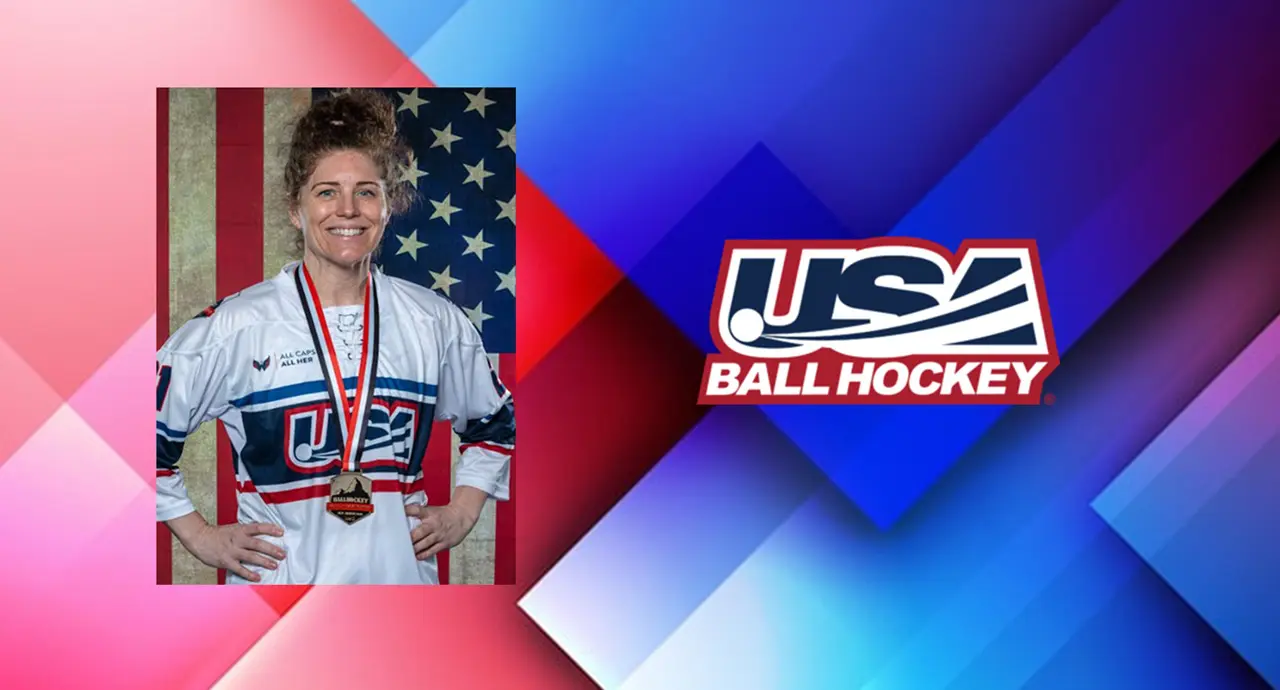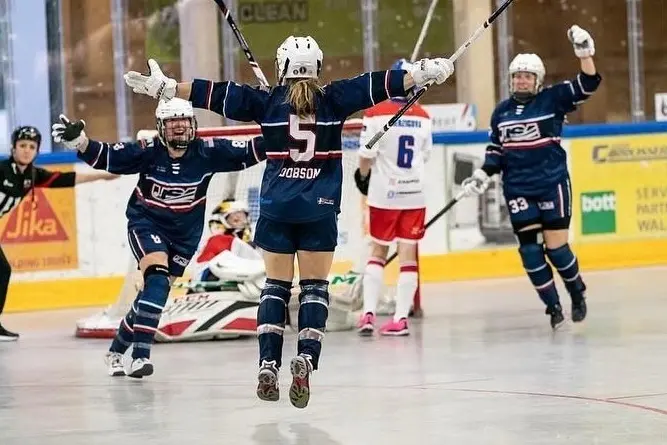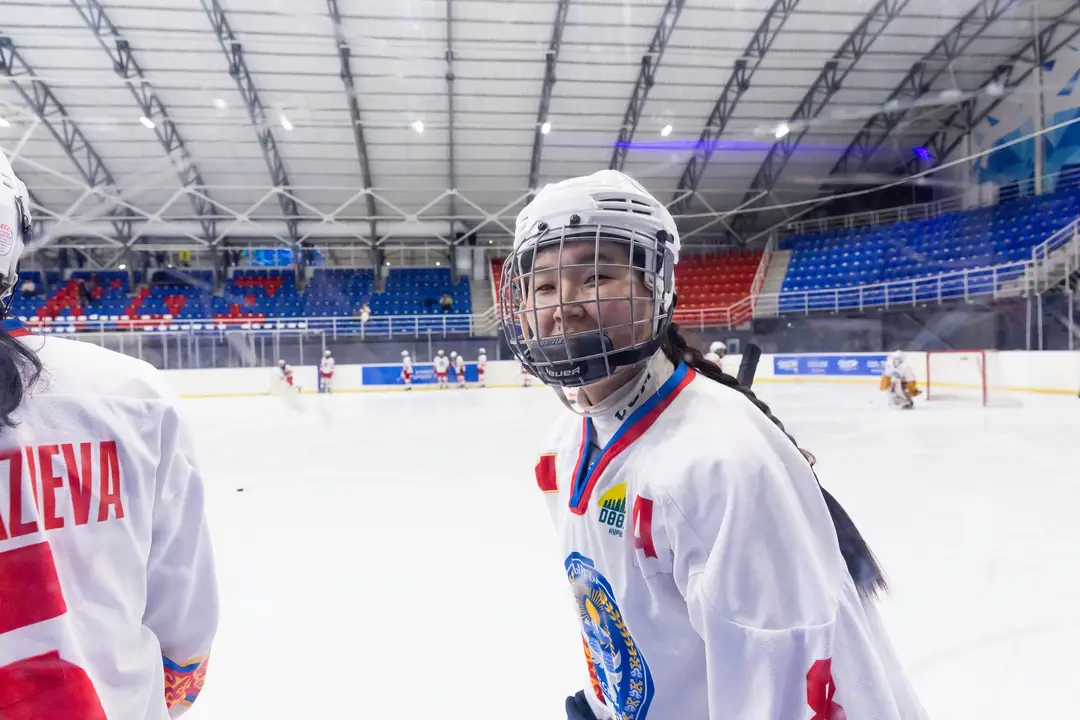Simultaneously an exciting and momentous tournament, the 1998 Nagano Winter Games assured Katie King-Crowley a place in hockey immortality. Part of one of the greatest teams in the game’s history, the achievement of the first women’s ice hockey gold medal in Winter Games play only grows with greater relevance.
Months prior to Nagano, King-Crowley, who grew up in Salem, New Hampshire, had graduated from Brown University. Amassing a breathtaking 206 points, she was also a two-sport for the Brown Bears, garnering the Ivy League Softball Player of the Year Award in 1996.
One year later, King-Crowley was one of the pitching sensations that propelled the Bears to an Ivy League championship. In the same year, she was recognized as the ECAC Hockey Player of the Year, placing her among the greatest student-athletes in Brown history, accentuated by the Marjorie Brown Smith Award as Outstanding Female Athlete. Such a whirlwind time continued with King gaining an opportunity to try out for the US national team.
By the end of her Winter Games journey following Torino 2006, King-Crowley would make her presence felt. Playing alongside such iconic stars as Karen Bye, Cammi Granato, Angela Ruggiero and Jenny Schmidgall-Potter, it was King who quietly assembled a compelling career where she was the all-time scorer for the US in Winter Games play following Torino, recording 23 points over the course of three tournaments.
The first step towards establishing such a legendary run began with head coach Ben Smith assembling the team. With a gathering of elite players all eager for the chance to be part of something so relevant and important for the game and its future, there was a euphoric feeling of achievement for King-Crowley, ecstatic at the chance to don the stars and stripes in a tournament that had all the intensity of a Stanley Cup championship,
“It was an amazing feeling to be named to my first Olympic team. It was something that you dream of for a long time and for it to come true is just simply amazing!”
Before the USA’s first game in Nagano, a February 8, 1998 tilt with Team China, the sense of historic achievement was also met by a feeling of apprehension. Although the feeling of edginess or tension before a game can be a common aspect of being an athlete, sometimes an example of their dedication to team and peak performance, King delivered on all accounts.
In a 5-0 blanking of China at Aqua Wing Arena, King would log a pair of assists in her Winter Games debut. The first assist would come in the second period on a goal by Tara Mounsey, extending the USA’s lead to 3-0. King would follow it up with an assist on the final goal of the game, scored by captain Cammi Granato at the 16:20 mark.
“I used to get nervous for all of our games and this was no different. It was again, an amazing experience, and to be standing there with 19 other women who worked so hard and gave so much to get to this point, it was awesome!”
Recording at least one point in all five of the USA’s games in the preliminary round, King’s efforts ensured that an undefeated run. Following the decisive outcome against China, the next contest would result in King-Crowley’s first career goal in Winter Games play.
With the USA dominating Sweden in a 7-1 final, King-Crowley would score in the second period with Alanna Blahoski gaining the assist on the milestone goal. More heroics would follow for her as she recorded a landmark hat trick in a 10-0 whitewash of host Japan.
Scoring twice in the second period, King would log the final goal of the game at the 13:03 mark of the third period, with Laurie Baker earning the assist. As a side note, King would reciprocate as she tallied an assist on a goal by Baker in a 7-4 win versus Canada in the final game of the preliminary round.
With a pair of wins in the medal round, including their second defeat of Canada in the gold medal game, the result propelled the team into the conversation as one of the greatest women’s ice hockey teams ever, sporting an undefeated mark throughout Nagano, never falling behind in any of the preliminary games.
As prestigious as the gold medal certainly was, there was a unique complement which added an unforgettable sense of importance to such an achievement. Celebrated for their golden hockey heroics, the US team earned a place on the iconic Wheaties box, which not only transitioned King-Crowley and her teammates into pop culture icons, it heralded the arrival of women’s hockey in the American sporting lexicon.
Being featured on the Wheaties box was definitely a significant achievement. As a side note, Cammi Granato and Sarah Tueting would be featured on “Late Show with David Letterman”, with the affable talk show host opening a box and indulging in the cereal on air.
Considering that no other women of hockey would be featured in the box early in the 21st Century, it has grown in relevance, running parallel to the growing mythology of the gold medal itself. For King-Crowley, there is definitely a sense of residual warmth when looking back on the chance to join the sorority of legendary female athletes that have experienced the Wheaties treatment,
“(Smiles) This was just a real fun thing to be a part of. Everyone was really excited to see the Wheaties box, it was a fun experience!”
As a side note, the road to Nagano also saw rivals from the Canadian squad featured on cereal boxes in their homeland. With the autumn of 1997 a watershed moment for women’s hockey in Canada, as a series of product endorsements and magazine covers were essential in raising awareness of the game north of the border, there was no shortage of unique hockey-related items on store shelves.
From the outset, Wheaties became available for the first time in the Canadian market, as the Maple Frosted Wheaties brand featured Cassie Campbell and Brendan Shanahan on the cover. As a side note, Campbell would also appear with Don Cherry on labels of Chunky Soup.
With Geraldine Heaney adorning the front of Apple Cinnamon Cheerios (which included the chance to purchase a national women’s hockey team poster), along with Nancy Drolet on Reese Puffs cereal boxes, it served as the introduction of women’s hockey for many Canadians. Along with the classic Wheaties box featuring King-Crowley et al, these truly emerged as some of the first women’s hockey collectibles.
Following Nagano, King-Crowley and Tricia Dunn gained a unique opportunity to commemorate their gold medal experience through the publication of a book that was uniquely part biographical and part instructional. Titled “Gold Medal Ice Hockey for Women and Girls”, it is actually a book still in print today.
Among the unique aspects of the book, focused on providing encouragement for women of all ages to learn about the game, was Tricia’s Tips and Katie’s Korner. Offering a poignant yet enjoyable way to become enlightened to the game’s elements, it encompassed several elements, from fitness and conditioning, to improving one’s skating skills while providing knowledge of the game’s rules, it proved to be an invaluable reference for so many that were introduced to the game through their collaborative efforts.
Of note, the gold medal in Nagano would prove to be prologue for such a captivating career. King-Crowley would continue to be one of the cornerstones for the US National Team. Competing in the TSN Challenge, the first-ever women’s ice hockey game contested at Toronto’s Air Canada Centre, it was part of the NHL’s 2000 All-Star Game Celebrations.
Following this landmark event, King-Crowley experienced the thrill of wearing the USA Hockey Jersey on home ice in successive years. Competing at the 2001 IIHF Women’s Worlds in Minnesota, only the second time that the US ever hosted the event, this was followed by the chance to grace the ice at the 2002 Salt Lake Winter Games.
As Salt Lake represented the first women’s ice hockey tournament at the Winter Games contested in North America, this was further affirmation of players such as King-Crowley becoming integral to the American hockey landscape.
Rekindling the fond memories of Nagano, the 2005 IIHF Women’s Worlds, held conjunctly in Linkoping and Norrkoping, Sweden allowed King-Crowley another treasured place in US hockey history. Defeating their eternal rivals, Canada, by a 1-0 tally in a shootout, it marked the first time that the US captured gold in the IIHF Women’s Worlds.
In five games played, King recorded three goals and two assists, placing sixth in team scoring. As a side note, the year prior saw King-Crowley enjoy the privilege of being inducted into both the Brown Hall of Fame and the Rhode Island Heritage Hall of Fame, respectively.
Despite the fact that Torino 2006 represented King-Crowley’s denouement as a player, the rich narrative as a hockey ambassador and key figure in US hockey was destined to continue. Serving in the IIHF’s Mentorship and Ambassador Program, assigned to work with Team Norway, it was a unique opportunity that brought King-Crowley’s experiences at Brown full circle. Of note, Digit Murphy, her head coach with the Bears worked with Team Slovakia.
Ten years after Nagano, the feeling of history definitely duplicated itself. With the inaugural IIHF Under-18 Women’s World Hockey Championships held in 2008, King-Crowley experienced the jubilation of another historic gold. Serving on the coaching staff for the US team, the gold medal game featured host country Canada and the US, extending such a remarkable rivalry.
With the 2010 edition of the IIHF U18 Women’s Worlds being hosted in Chicago, the first time that the US took on the role of host country, it was fitting to see King-Crowley take on the role of head coach. Although Canada’s Jessica Campbell would score the gold medal winning goal in overtime, the players on both teams were a compelling preview of the exciting future to come. Of note, the US roster featured the likes of Brianna Decker and Alex Rigsby, future Winter Games competitors that King-Crowley would enjoy the prestige of coaching.
Of note, such world-class competitors also helped define King-Crowley’s compelling career as a head coach with the Boston College Eagles, where she has won over 200 games as a head coach. In addition to having Gillian Apps, a gold medalist with Canada in the Winter Games, on her current coaching staff, she has also worked at BC with Courtney Kennedy. A teammate at the 2002 and 2006 Winter Games, Kennedy served as Associate Head Coach at BC.
Three players that King-Crowley coached at Boston College, Alexandra Carpenter (daughter of Stanley Cup champion Bobby Carpenter), goaltender Molly Schaus and forward Kelli Stack, were all members of Team USA’s entry at the 2014 Sochi Winter Games. Along with star players such as Katie Burt (US U18 alum) and Blake Bolden (US national team alum) who have also played under her terrific tutelage at Chestnut Hill, the level of talent that has worn the BC jersey further enhances her value to the game.
The opportunity to have been able to coach such amazing players, who have not only carried on King-Crowley’s Olympic legacy but provided a new generation of aspiring players with their own heroes to emulate, is an aspect that makes the experience of coaching even more special.
“I am so proud of (what) all those players have accomplished on and off the ice. They are great people and great players! They have given so much to Boston College Women’s Hockey and it’s great to see them attain those goals of playing in the Olympics.”
Although it seems difficult to fathom that Nagano is approaching its 20th anniversary, the reality is that the gold medal is an artifact unto itself. A constant reminder of a monumental milestone, transporting King-Crowley back to a ground-breaking time, Nagano proved to be the springboard for a career that represented the road map of her athletic odyssey.
With the nostalgic anniversary of Nagano, it also serves as motivation for a new team of US talent to reach its golden promise. Eager to capture an elusive Winter Games gold in 2018, it would be a fitting homage to pioneering heroes such as King-Crowley, who contributed and shaped the game’s modern history.
“I am so proud of our gold medal. It still feels surreal! The gold medal reminds me of my teammates and staff and what we put together to win for our country. After being in 2 other Olympics I realize how difficult it is to win and it makes me even more proud of what we accomplished.
It is, again, still the most amazing moment for all of us! This gold medal had bonded us and we still keep in touch to this day whether it’s a text or a phone call, we have a close group who still care about each other.”
“All quotes obtained first hand unless otherwise indicated”
Photo credits: Getty Images (The Asahi Shimbun, Brian Bahr, Jeff Gross), Amanda Sabga
Images obtained from: http://www.wheatiesking.com/olympics/1998-u-s-olympic-womens-hockey and http://photos.northofboston.com/The-Eagle-Tribune/ETArchive/2016/January-2016-ET/i-4WmCSGj
Book cover image obtained from: https://www.amazon.com/Gold-Medal-Hockey-Women-Girls/dp/1886284377/ref=sr_1_1?s=books&ie=UTF8&qid=1508007575&sr=1-1&keywords=Tricia+Dunn
[adrotate group=”1″]
Related Articles
Categories
Recent Posts
[adrotate group=”2″]










